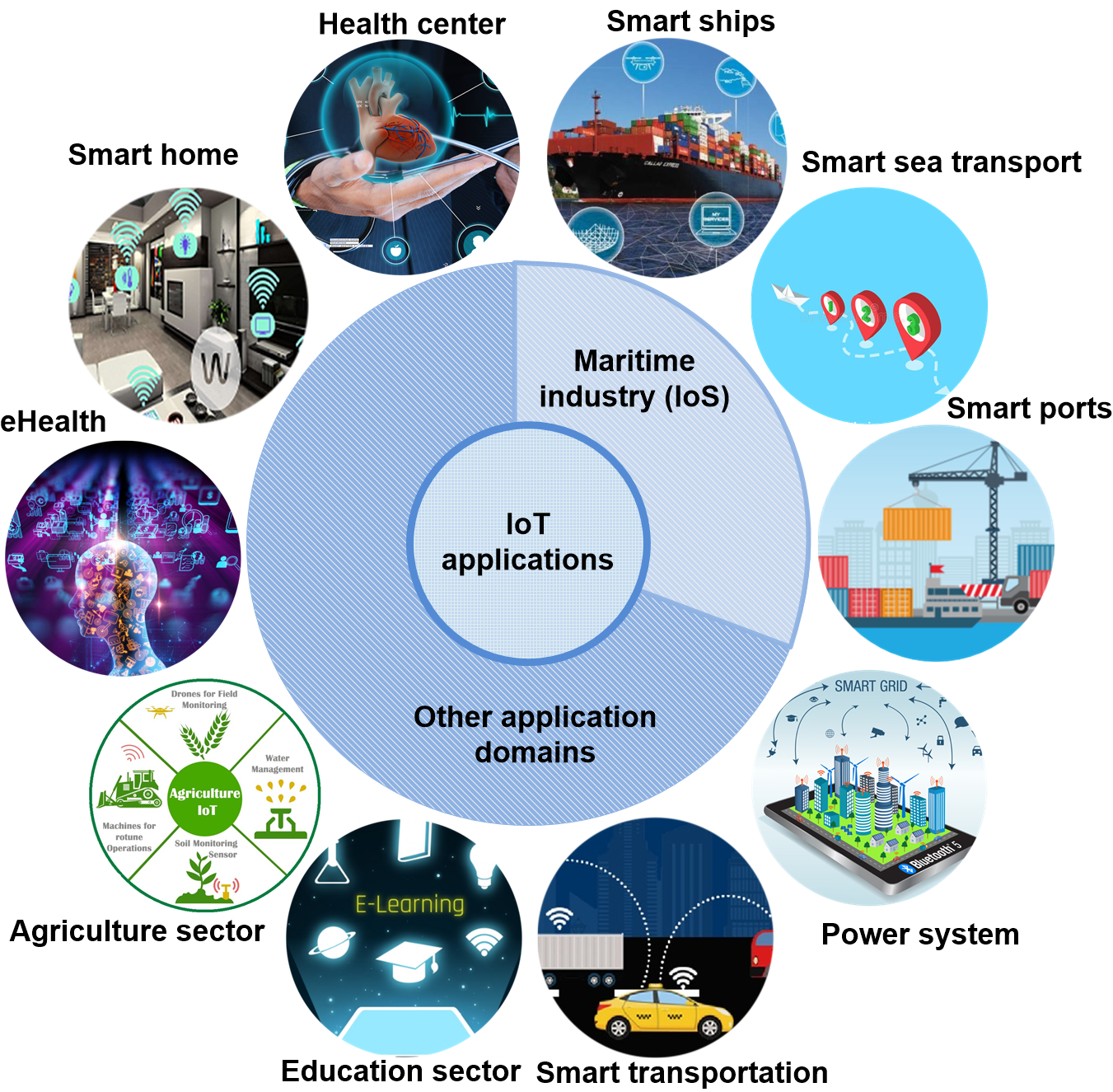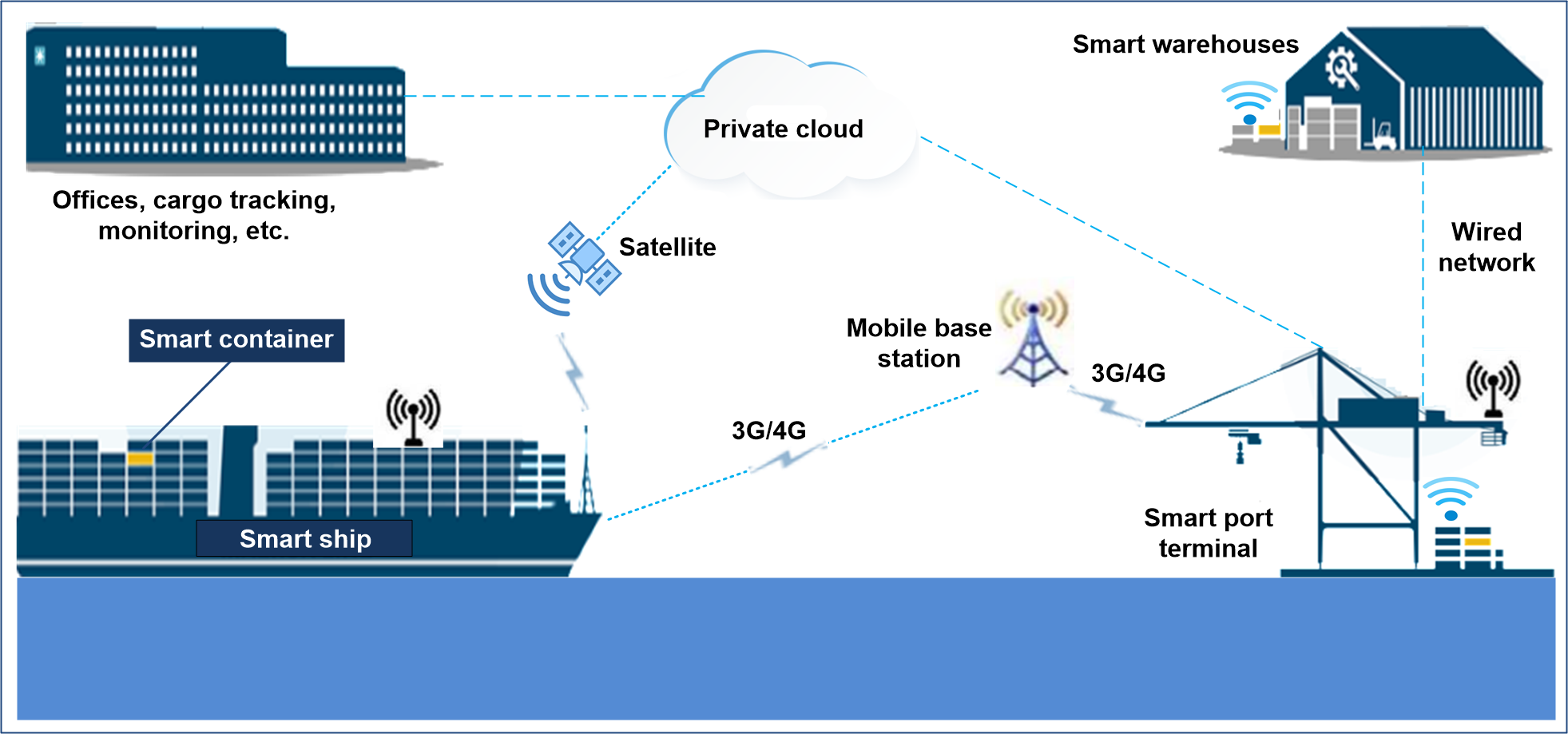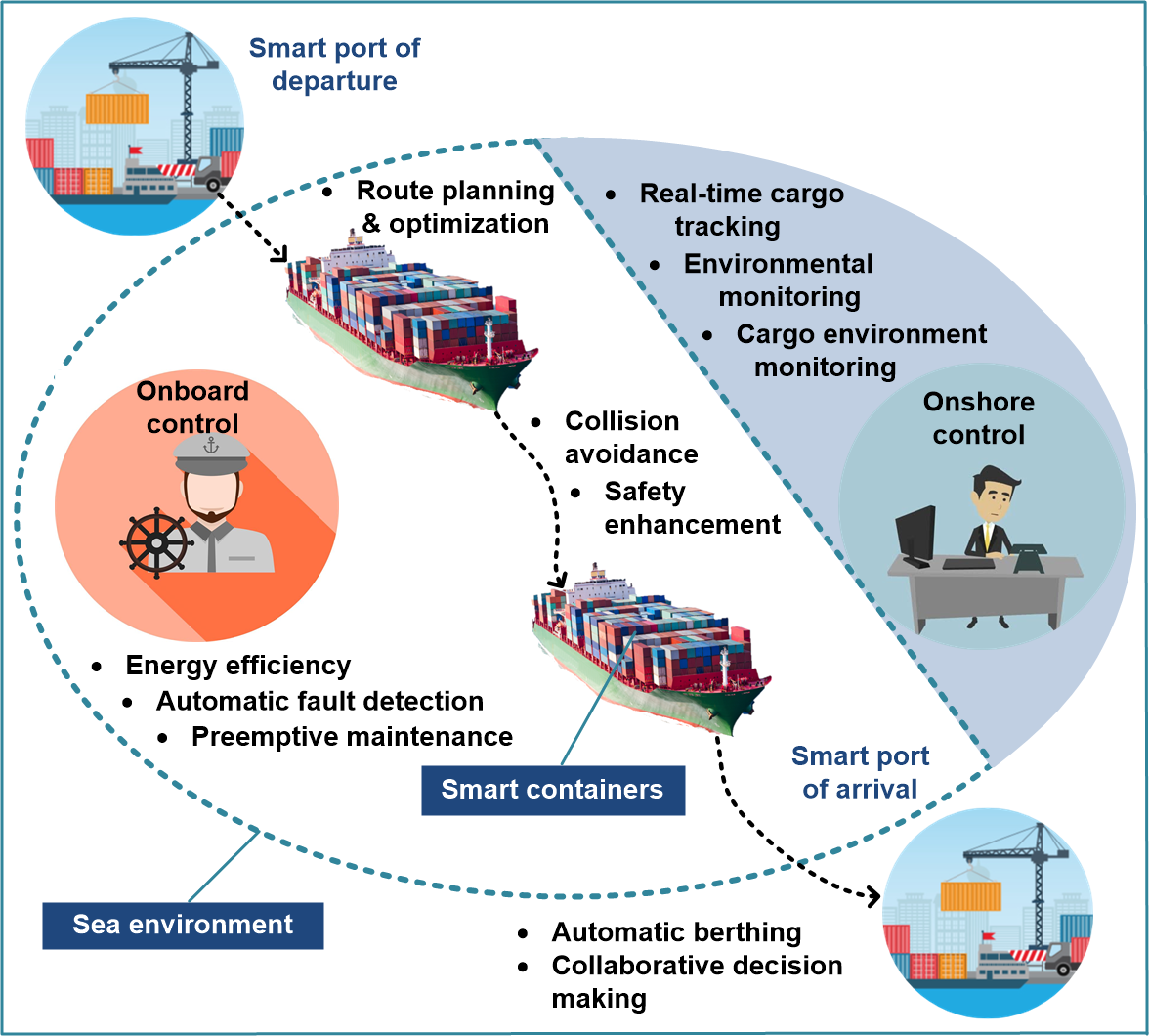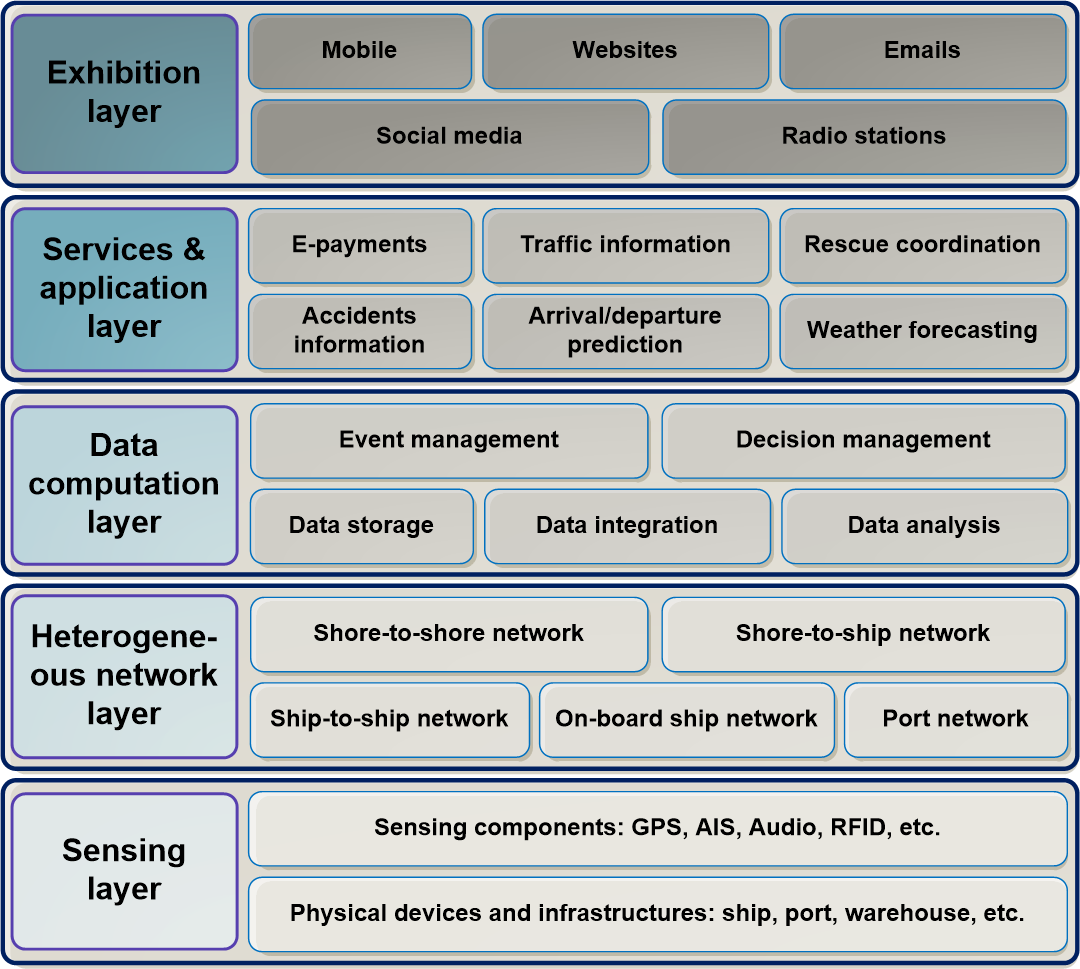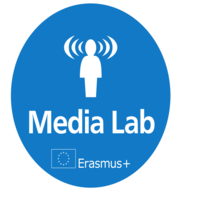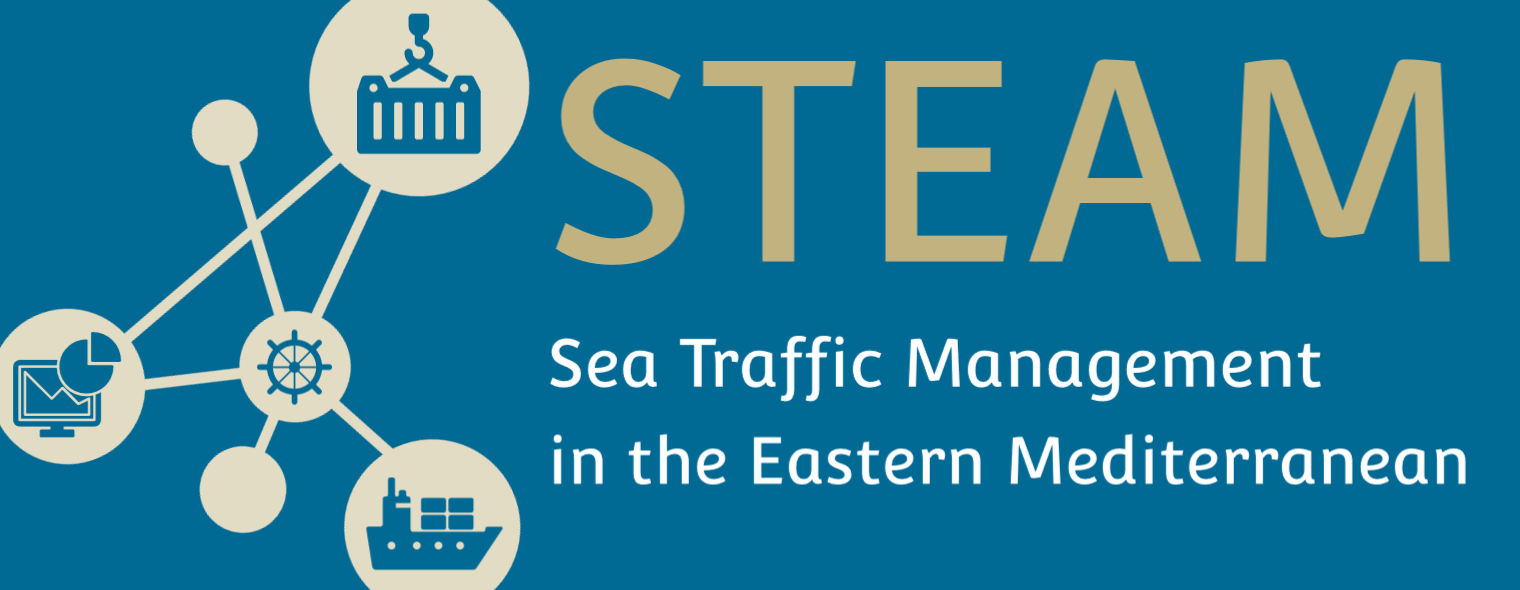
We are very happy to announce that STEAM Researchers have recently published a survey/review article in the very prestigious IEEE Internet of Things Journal. The article entitled: “Internet of Ships: A Survey on Architectures, Emerging Applications, and Challenges“ was authored by Sheraz Aslam, Michalis Michaelides and Herodotos Herodotou from the Department of Electrical Engineering, Computer Engineering and Informatics of the Cyprus University of Technology (CUT).
The Internet of Ships (IoS) is a novel application domain of IoT that refers to a network of smart interconnected maritime objects, which can be any physical device or infrastructure associated with a ship, a port, or the transportation itself, with the goal of significantly boosting the shipping industry towards improved safety, efficiency, and environmental sustainability. The authors specifically focus on the IoS architecture, its key elements, and its main characteristics. The study also reviews the state of the art for emerging intelligent applications associated with the IoS including safety enhancements, route planning and optimization, collaborative decision making, automatic fault detection and preemptive maintenance, cargo tracking, environmental monitoring, energy-efficient operations, and automatic berthing. Eventually, the presented open challenges in the paper provide a roadmap towards optimized maritime operations and autonomous shipping.
The published article can be found
https://ieeexplore.ieee.org/stamp/stamp.jsp?tp=&arnumber=9090272
or
https://www.researchgate.net/publication/341160084_Internet_of_Ships_A_Survey_on_Architectures_Emerging_Applications_and_Challenges
STEAM (Sea Traffic Management in the Eastern Mediterranean) is a three-year project that has started in Jan. 2019 with a budget of approximately one million EUR. The project is coordinated by the Cyprus University of Technology (CUT) with the Research Institutes of Sweden (RISE) participating in the project as a Foreign Research Organization. Furthermore, the STEAM consortium consists of the Cyprus Ports Authority, the Cyprus Shipping Association and the private companies Tototheo Maritime, A.T. DeLevant Business Solutions, and Cyprus Subsea Consulting and Services. Also, very important is the participation in the project as associated partners of established stakeholders of the Cyprus maritime sector including the Cyprus Shipping Chamber, the Maritime Institute of Eastern Mediterranean (Mar.In.E.M.), and the private companies that currently handle the operations at the Port of Limassol: DP WORLD Limassol, EUROGATE Limassol Container Terminal και P&O Maritime. The primary goal of STEAM is to develop the Port of Limassol to become a world-class transshipment and information hub adopting modern digital technologies brought to the maritime sector, as well as a driver for short sea shipping in the Eastern Mediterranean. For more information see https://steam.cut.ac.cy/.
This work was co-funded by the European Regional Development Fund and the Republic of Cyprus through the Research Promotion Foundation (STEAM Project: INTEGRATED/0916/0063).
Contact: michalis.michaelides@cut.ac.cy
Michalis Michaelides, Assistant Professor, Department of Electrical Engineering, Computer Engineering and Informatics
Πρόσκληση σε Διαδικτυακό συνέδριο του προγράμματος Media Lab

We are very happy to announce that STEAM Researchers have recently published a survey/review article in the very prestigious IEEE Internet of Things Journal. The article entitled: “Internet of Ships: A Survey on Architectures, Emerging Applications, and Challenges“ was authored by Sheraz Aslam, Michalis Michaelides and Herodotos Herodotou from the Department of Electrical Engineering, Computer Engineering and Informatics of the Cyprus University of Technology (CUT).
The Internet of Ships (IoS) is a novel application domain of IoT that refers to a network of smart interconnected maritime objects, which can be any physical device or infrastructure associated with a ship, a port, or the transportation itself, with the goal of significantly boosting the shipping industry towards improved safety, efficiency, and environmental sustainability. The authors specifically focus on the IoS architecture, its key elements, and its main characteristics. The study also reviews the state of the art for emerging intelligent applications associated with the IoS including safety enhancements, route planning and optimization, collaborative decision making, automatic fault detection and preemptive maintenance, cargo tracking, environmental monitoring, energy-efficient operations, and automatic berthing. Eventually, the presented open challenges in the paper provide a roadmap towards optimized maritime operations and autonomous shipping.
The published article can be found
https://ieeexplore.ieee.org/stamp/stamp.jsp?tp=&arnumber=9090272
or
https://www.researchgate.net/publication/341160084_Internet_of_Ships_A_Survey_on_Architectures_Emerging_Applications_and_Challenges
STEAM (Sea Traffic Management in the Eastern Mediterranean) is a three-year project that has started in Jan. 2019 with a budget of approximately one million EUR. The project is coordinated by the Cyprus University of Technology (CUT) with the Research Institutes of Sweden (RISE) participating in the project as a Foreign Research Organization. Furthermore, the STEAM consortium consists of the Cyprus Ports Authority, the Cyprus Shipping Association and the private companies Tototheo Maritime, A.T. DeLevant Business Solutions, and Cyprus Subsea Consulting and Services. Also, very important is the participation in the project as associated partners of established stakeholders of the Cyprus maritime sector including the Cyprus Shipping Chamber, the Maritime Institute of Eastern Mediterranean (Mar.In.E.M.), and the private companies that currently handle the operations at the Port of Limassol: DP WORLD Limassol, EUROGATE Limassol Container Terminal και P&O Maritime. The primary goal of STEAM is to develop the Port of Limassol to become a world-class transshipment and information hub adopting modern digital technologies brought to the maritime sector, as well as a driver for short sea shipping in the Eastern Mediterranean. For more information see https://steam.cut.ac.cy/.
This work was co-funded by the European Regional Development Fund and the Republic of Cyprus through the Research Promotion Foundation (STEAM Project: INTEGRATED/0916/0063).
Contact: michalis.michaelides@cut.ac.cy
Michalis Michaelides, Assistant Professor, Department of Electrical Engineering, Computer Engineering and Informatics

